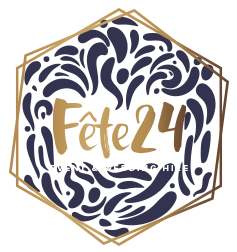What is a Plus-One at a Wedding?
16/11/2023When it comes to wedding invitations and guest etiquette, deciding who comes along and who gets to bring their partners or "plus ones" can be one of the trickiest parts of wedding planning.
If you're confused about what a plus-one is, how to handle them on your guest list, and whether or not you should offer them to your guests, let's clear things up.
What is a Wedding Plus-One?
A plus-one is simply an additional guest that a wedding invitee may bring to the wedding. In most cases, this is the person that the invitee is in a relationship with (such as a spouse or partner), but it could also be a close friend or family member.
Traditionally, only guests who were married, engaged, or in a serious relationship were given the opportunity to bring a plus-one. However, as weddings have become more relaxed, couples are increasingly offering the option to bring a guest to single friends and acquaintances.
It used to be the case that those invited by name had a "plus one" printed on their wedding invitation. However, more recently, marrying couples tend to include the names of those invited, so there's no confusion regarding who is and isn't allowed to bring a guest.
Should You Offer Plus-Ones to Everyone?
This is entirely up to you as the couple getting married. There are no set rules regarding who you should offer a plus-one to. You may want to offer them to all of your guests, or you may only want to offer them to guests in a serious relationship. Ultimately, it's up to you to decide what makes the most sense for your wedding.
For more close friends and family, you will likely already know the names of the person they are currently dating or in a relationship with. If you don't, you can politely ask beforehand so they can be added to the invitation by name rather than as a plus-one.
Regarding who gets a plus-one and who doesn't, there may be a few factors to consider. For example, you may want to offer a plus-one to guests who have travelled a long distance to attend your wedding or to those who know very few people at the wedding personally.
If you can, try to put yourself in the shoes of the person you're inviting. If you think they would be uncomfortable attending the wedding without a guest, then it may be worth offering them a plus-one. Whatever you decide, try to be consistent with your so-called "plus-one criteria," otherwise, you may end up upsetting some of your guests.
Generally speaking, preference is given to those closest to you rather than the status of the relationship. For example, it would make more sense to invite your best friend's boyfriend of six months than the husband of a work colleague you don't know very well.
An exception to the rule may be if the person you are inviting is in a new relationship and you have not yet met their partner. In this case, you may want to wait until you have met them before extending a plus-one invitation.
How to Handle Plus-Ones on Your Wedding Guest List
If you decide to offer plus-ones to some or all of your guests, there are a few things you'll need to keep in mind regarding your guest list.
Firstly, keep a close eye on RSVPs, so you can get an accurate headcount of how many people will be attending your wedding. If you receive an RSVP confirming the plus-one without their name, follow up to get the name so you can add them to elements such as your seating plan.
When it comes to your wedding budget, don't forget to factor in the cost of feeding an additional guest for each plus-one that you offer. This is especially important if you plan to have a sit-down meal at your reception. That's why many couples limit the number of plus-ones for the so-called "day do" to help keep costs down.
Lastly, if your venue has a capacity limit, make sure to take plus-ones into account when finalising your guest list. This includes the evening reception, which tends to involve far more plus-ones than the guests invited to the wedding ceremony and meal.
Planning Your Wedding Plus-Ones Can Be Tricky, But Ultimately It's Up to You
Whether or not you offer plus-ones at your wedding is entirely up to you. There are no strict rules about who should or shouldn't get a plus-one. Ultimately, it's your call whether you want to extend the courtesy to some (or all) of your guests.
If you do decide to offer plus-ones, make sure you factor in the additional costs and possible venue capacity limits. Lastly, keep a close eye on RSVPs to get a handle on the names of the plus-ones and an accurate headcount of how many people will be attending your big day (including those only coming to the evening celebrations).
By following these simple tips, you can ensure that your wedding guest list is managed effectively, whatever your decision on plus-ones may be.











